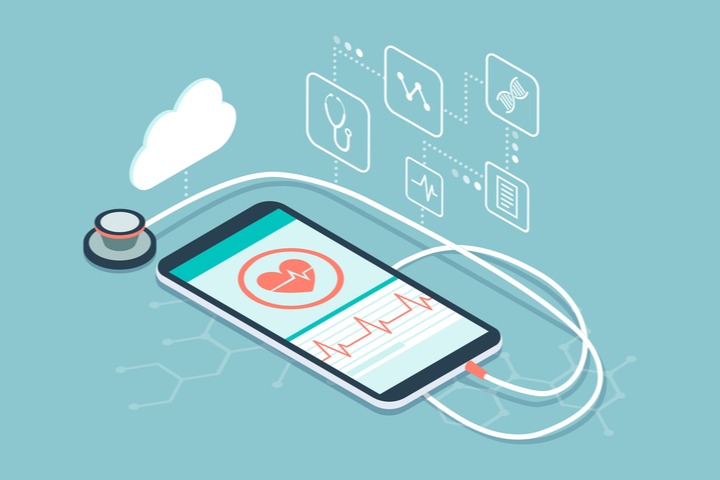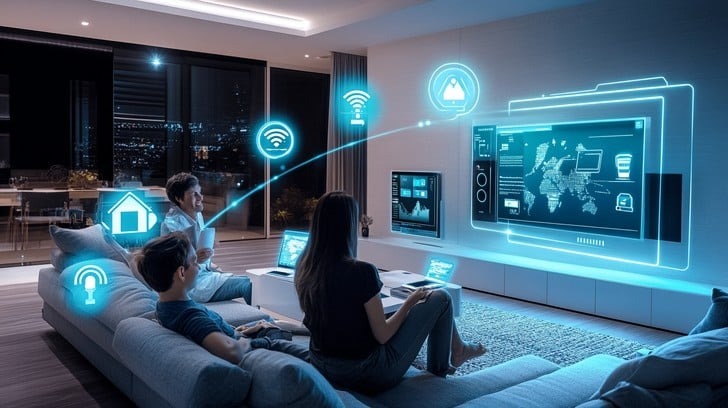In today’s fast-paced world, health and wellness have become top priorities for individuals and communities alike. With increasing awareness about physical, mental, and emotional health, people are turning to new and innovative solutions to lead healthier lives. Among the biggest game-changers in this space is digital technology — a force that’s reshaping how we approach fitness, nutrition, mental health, and overall well-being.
From smart wearables to health tracking apps, the fusion of health and digital tech has opened the door to more personalized, accessible, and data-driven wellness experiences.
The Growing Importance of Health & Wellness
Health is no longer just about the absence of illness; it’s about achieving a state of complete physical, mental, and social well-being. With rising concerns over sedentary lifestyles, poor eating habits, and stress-related issues, individuals are now more motivated than ever to invest in their personal health.
Whether it’s hitting the gym, eating clean, meditating, or practicing yoga, people are actively seeking ways to maintain a balanced lifestyle. This shift in mindset has also led to the booming health and wellness industry, which includes fitness, nutrition, mental health, alternative medicine, and wellness tourism.
Enter Digital Technology: A Wellness Revolution
1. Wearables & Fitness Trackers
One of the most noticeable technological advancements in the wellness space is the rise of smart wearables like smartwatches and fitness bands. Devices from brands like Fitbit, Garmin, and Apple track physical activity, heart rate, sleep patterns, and even blood oxygen levels.
These wearables empower users with real-time data, helping them make informed decisions about their fitness routines and daily habits. They also sync with mobile apps, allowing users to set goals, monitor progress, and stay motivated.
2. Health & Wellness Apps
From guided meditation to virtual personal training, mobile apps have become essential tools in our wellness journey. Apps like MyFitnessPal, Headspace, and Nike Training Club offer everything from workout plans and calorie counting to mindfulness exercises and stress management.
Many of these apps use AI and machine learning to provide personalized suggestions based on your goals and behavior. This means a more customized approach to health that’s both convenient and effective.
3. Telehealth & Online Consultations
Gone are the days of long queues at clinics. Thanks to telemedicine, patients can now consult with doctors, nutritionists, and therapists online. Platforms like Practo and 1mg have revolutionized access to healthcare services, especially in remote or underserved areas.
This digital shift not only saves time and travel costs but also ensures continuity of care for those managing chronic conditions or mental health challenges.
Digital Wellness: A New Frontier
As we become more dependent on digital tools, a new concept has emerged — digital wellness. It’s about maintaining a healthy relationship with technology to prevent burnout, stress, and screen addiction.
Features like app usage tracking, screen time limits, and focus modes on smartphones encourage users to unplug and maintain a healthier tech-life balance.
The Role of Social Media in Health Awareness
While often criticized for its negative impact, social media has also played a positive role in spreading health awareness. Fitness influencers, dietitians, and mental health advocates use platforms like Instagram, YouTube, and TikTok to share tips, debunk myths, and promote healthy living.
This has created online wellness communities where people can find motivation, share experiences, and support each other’s journeys.
Challenges & Considerations
Despite the many benefits, integrating digital technology into health and wellness does come with challenges:
- Data privacy and security are major concerns when it comes to storing personal health data.
- Not everyone has access to the internet or smart devices, especially in rural or underdeveloped regions.
- Overreliance on technology can sometimes lead to self-diagnosis or misinformation.
Hence, it’s essential to balance tech usage with professional guidance and credible information sources.
The Future of Health & Wellness
The future of wellness is undoubtedly digital-first. With the integration of AI, virtual reality (VR), and wearable biosensors, we can expect even more advanced solutions for personalized health management.
Imagine a world where your smartwatch not only tracks your vitals but also predicts potential illnesses before symptoms appear. Or a VR headset that guides you through immersive meditation sessions to reduce anxiety. These aren’t just dreams — they’re fast becoming reality.
Final Thoughts
The convergence of health, wellness, and digital technology is creating a new era of self-care. It’s no longer just about visiting the doctor when you’re sick — it’s about using smart tools and insights to stay healthy, prevent disease, and enhance your overall well-being.
As consumers become more health-conscious and tech-savvy, the demand for digital wellness solutions will continue to grow. By embracing this digital transformation, we can lead healthier, more balanced lives — both physically and mentally.





